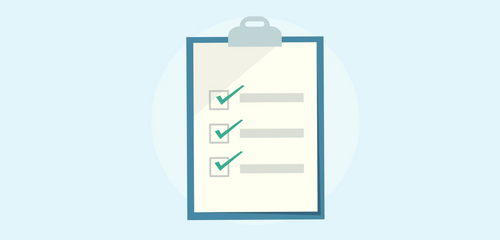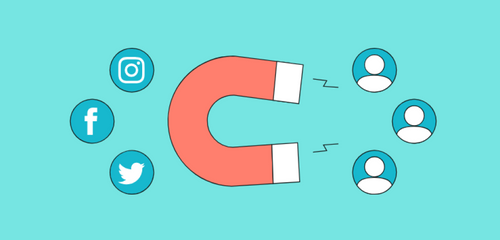Your New Secret Weapon is Here!
Welcome to our blog post on conversion marketing. In this article, we'll look at what conversion means in online marketing and why it's so important. We'll also look at different types of conversions and how you can optimize them to get more sales.
What does conversion mean and why is it so important in online marketing?
The term conversion describes the conversion of a prospect into a customer or the fulfillment of a desired action on your website. This can be, for example, registering for a newsletter, purchasing a product or filling out a contact form. In any case, the aim is to persuade the user to carry out a desired action.
In online marketing, conversion plays a crucial role as it is directly related to your sales and success. The higher your conversion rate, i.e. the percentage of visitors who carry out a desired action, the more sales you can generate. A good conversion rate is therefore of great importance for the success of your website or online shop.
The different types of conversions and how to optimize them
There are different types of conversions that you can optimize to get more sales. This includes, for example, registering for a newsletter, making a purchase, filling out a contact form or downloading a white paper. Each of these conversion goals has its own specific actions to achieve it.
In order to optimize conversions, it is important to understand the customer journey of your target group and to offer the right content and marketing measures. For example, you can carry out targeted advertising measures, create landing pages or improve the design and usability of your website. There are numerous tools that can help you analyze and optimize your conversion rate.
What is conversion rate optimization and how does it help you improve your KPIs?
Conversion Rate Optimization (CRO) is the process of continuously improving your conversion rate. Various measures are taken to increase the desired action of the users. By improving your conversion rate, you can improve your key performance indicators (KPIs), such as the number of registered users, the number of purchases made or the ROI of your advertising measures.
To optimize your conversion rate, it is important to analyze user interactions, understand user behavior and take targeted action. This can include, for example, improving the design and usability of your website, using appealing call-to-actions or personalizing the content.
What influence do Google Ads campaigns have on your conversion rate and how can you use them to do this?
Google Ads campaigns can have a big impact on your conversion rate. Targeted ads can drive qualified traffic to your website and motivate potential customers to take a desired action. For example, you can choose specific keywords to place your ads for relevant searches, or use different ad extensions to include additional information or calls-to-action.
In order to use Google Ads campaigns effectively to increase your conversion rate, it is important to define your target group precisely and to use the right keywords and ad copy. You should also regularly monitor and optimize your campaigns to get the best results.
How you can use targeted measures to increase your conversion rate and thus your sales
There are various targeted measures you can take to increase your conversion rate and thus increase your sales. One measure is, for example, improving the user experience on your website. Optimize loading times, design user-friendly navigation and ensure attractive and relevant content. By doing this, you can earn visitors' trust and motivate them to take a desired action.
Another aspect is implementing call-to-actions in strategic places on your website. Use clear and attractive buttons or links that prompt users to take action. You can also improve the effectiveness of your call-to-actions through testing and analysis.

What tools are there to analyze and improve the conversion of your website?
There are various tools to help you analyze and improve your website's conversion. For example, Google Analytics and Google Search Console offer numerous functions for monitoring and analyzing your conversion rate. You can use it to track user interactions, measure click and dwell time, and identify causes of high exit rates.
Other tools such as Hotjar or Crazy Egg enable heatmap analysis, which you can use to visualize user behavior on your website. This gives you valuable insights into how users interact with your website and which areas can be optimized.
Why conversion marketing should be an important part of your marketing strategy
Conversion marketing is an important part of your marketing strategy as it is directly related to your sales and success. By optimizing your conversion rate, you can generate more sales and achieve your marketing goals. Through targeted measures and the analysis of user behavior, you can increase the effectiveness of your marketing campaigns and increase user satisfaction.
What are leads and how do they help you increase your conversion rate?
Leads are potential customers who register on your website for more information or offers. They are an important part of your conversion strategy as you can convert them into customers. By generating qualified leads and conducting targeted lead nurturing activities , you can increase the likelihood of a conversion. Leads allow you to guide the user down the conversion funnel and build the trust needed to close a sale.

FAQ
Was ist Conversion Marketing?
Conversion marketing deals with converting visitors to a website into customers.
What role does conversion play in online marketing?
Conversion is an important factor in online marketing. Converting visitors to customers increases sales.
What does conversion rate mean?
The conversion rate indicates how many visitors to a website convert to customers. It is given as a percentage.
How to increase the conversion rate?
A higher conversion rate can be achieved by optimizing the user experience, targeted marketing measures and defined KPIs.
How can Google Ads help to increase the conversion rate?
Through targeted campaigns and the measurement of click and conversion numbers, Google Ads can help improve the conversion rate.
What is a lead?
A lead is a prospect who is interested in a service or product and leaves their contact details.
What is a funnel?
A funnel describes the process of converting a website visitor to a customer. There are different stages that have to be passed through.
Why is a successful conversion important for companies?
A successful conversion is necessary to increase sales and ensure the success of a business.
What does a good conversion rate mean?
A good conversion rate is around 2-3%. However, it is also industry dependent and may differ depending on the type of website.
What is the impact on the conversion rate?
The conversion rate can be influenced by various factors, such as user experience, content marketing and targeted marketing measures.
Conclusion
Conversion is the key to more sales in online marketing and should therefore not be neglected. Through targeted measures and optimizing your conversion rate, you can generate more sales and achieve your marketing goals. In addition, tools for analyzing and improving your conversion help you to increase the effectiveness of your marketing campaigns and improve the user experience. Therefore, conversion marketing should be an important part of your marketing strategy.
Your New Secret Weapon is Here!

























